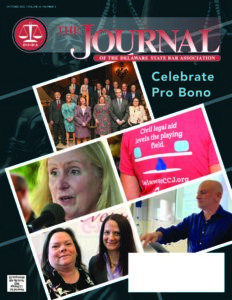Denise is a single mother working part-time and attending nursing school full-time to support herself and her daughter. Normally, going to school, working and caring for your daughter is exhausting for an adult with no other responsibilities. However, Denise’s responsibilities go beyond those of most working parents. Denise’s daughter, Jessica, suffers from cerebral palsy, asthma and other disabilities which require 24 hour medical care.
Jessica suffers from a seizure disorder which requires constant monitoring and medical attention. If she has a seizure, the caregiver must prevent her from harming herself. If she has a seizure a skilled caregiver must monitor her closely and act, if necessary, to prevent neurological damage. Jessica also has serious asthma attacks which require prompt medical attention.
Jessica cannot attend a regular day care facility because of her health condition. Denise’s mother sometimes cares for Jessica when Denise is at work or school but she is frequently unavailable. At times, Denise has taken Jessica to class with her because she cannot find anyone to babysit who is qualified to administer the emergency medications.
In light of her condition, Jessica’s doctor prescribed twenty hours per week of private duty nursing services at home. The managed care organization (MCO) that provides Jessica’s medical benefits under the Medicaid program denied the services to Jessica. The MCO found that the services requested were not “medically necessary” and prescribed only for the purposes of enabling Jessica’s mother to work and attend school.
With the assistance of a CLASI attorney in the Disabilities Law Program Denise filed an administrative appeal of the decision on Jessica’s behalf. The attorney researched the case, interviewed Jessica’s medical care providers and submitted a memorandum of law to the administrative hearing officer prior to the hearing.
Denise and Jessica’s doctor testified at the hearing. The doctor from the MCO testified at the hearing concerning the basis for his decision to deny the request. The doctor stated that the request was solely to provide “rest and relief” to Jessica’s mother, not for medical necessity. There was nothing that a nurse could provide for Jessica that her mother did not already provide in the home.
After hearing the testimony of the witnesses for the MCO and the testimony from Jessica’s doctor and Denise, the hearing officer reversed the decision and awarded the benefits. He found that the services were a medical necessity. They were not provided for purposes of providing “rest and relief” to Jessica’s mother.
He found that Denise was not “resting” at all. When she was not caring for Jessica, Denise worked hard at her job and at school to make a better life for herself and her daughter. The hearing officer found that enabling Denise to continue this work was in keeping with the overall mission of the Delaware Department of Health and Social Services including their promotion of “family independence, their commitment to empowering families to reach their maximum potential and their pledge to protect vulnerable populations.”
As a result of the administrative hearing Jessica will have private duty nursing services in her home for twenty hours each week. This will enable Denise to complete her education and start a new career in nursing.
